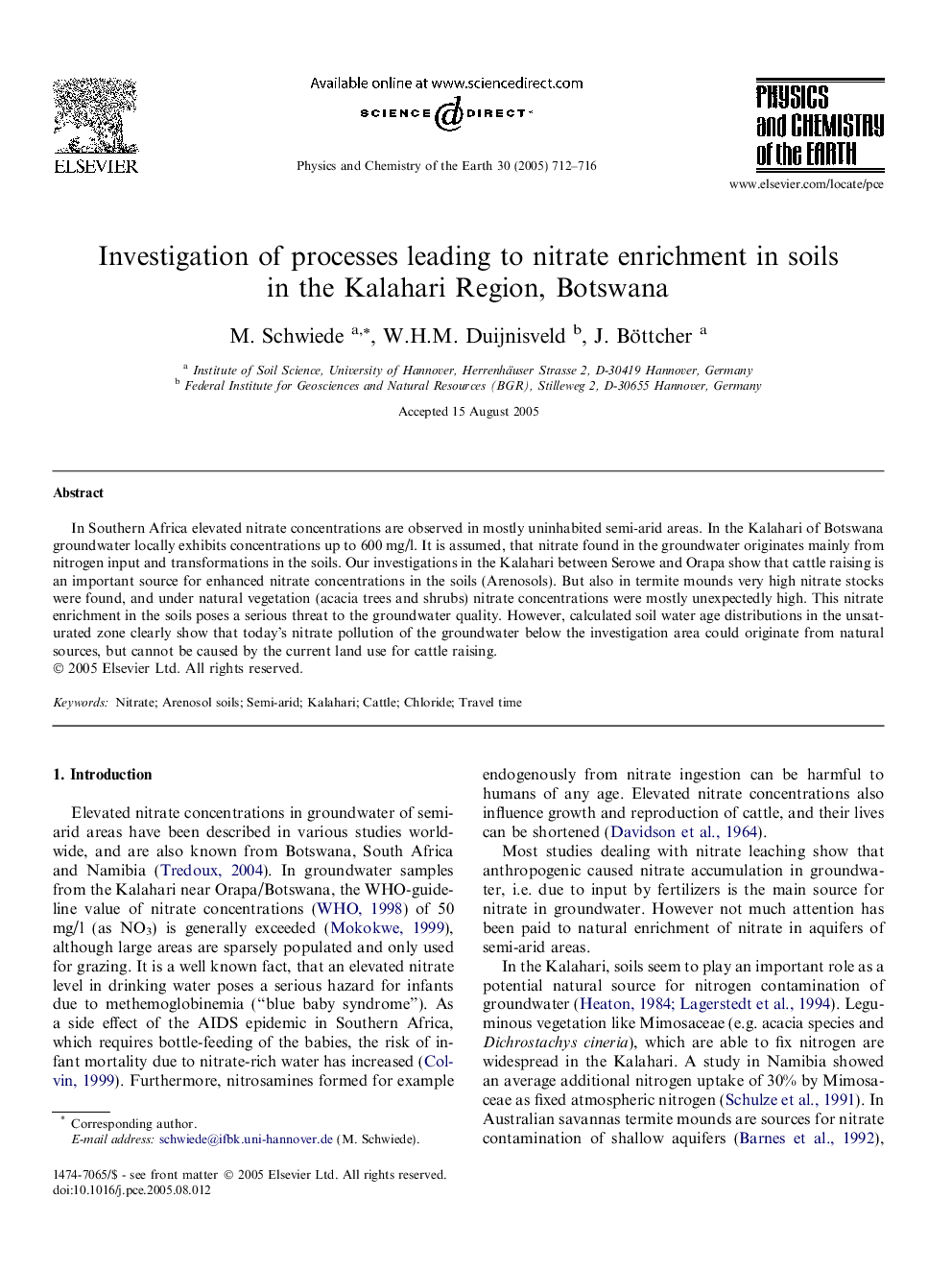| Article ID | Journal | Published Year | Pages | File Type |
|---|---|---|---|---|
| 10120018 | Physics and Chemistry of the Earth, Parts A/B/C | 2005 | 5 Pages |
Abstract
In Southern Africa elevated nitrate concentrations are observed in mostly uninhabited semi-arid areas. In the Kalahari of Botswana groundwater locally exhibits concentrations up to 600Â mg/l. It is assumed, that nitrate found in the groundwater originates mainly from nitrogen input and transformations in the soils. Our investigations in the Kalahari between Serowe and Orapa show that cattle raising is an important source for enhanced nitrate concentrations in the soils (Arenosols). But also in termite mounds very high nitrate stocks were found, and under natural vegetation (acacia trees and shrubs) nitrate concentrations were mostly unexpectedly high. This nitrate enrichment in the soils poses a serious threat to the groundwater quality. However, calculated soil water age distributions in the unsaturated zone clearly show that today's nitrate pollution of the groundwater below the investigation area could originate from natural sources, but cannot be caused by the current land use for cattle raising.
Related Topics
Physical Sciences and Engineering
Earth and Planetary Sciences
Geochemistry and Petrology
Authors
M. Schwiede, W.H.M. Duijnisveld, J. Böttcher,
